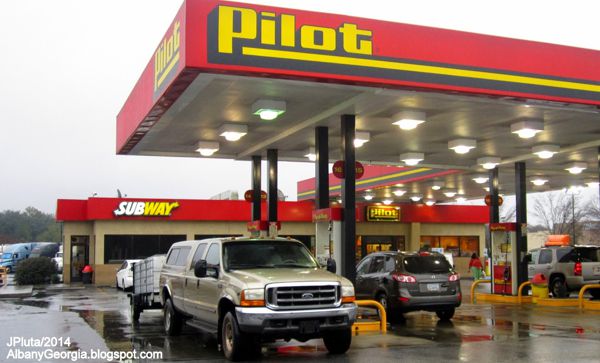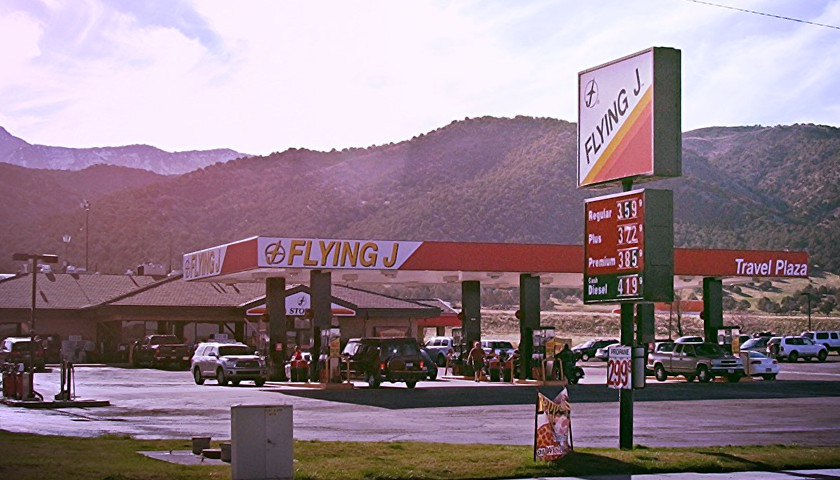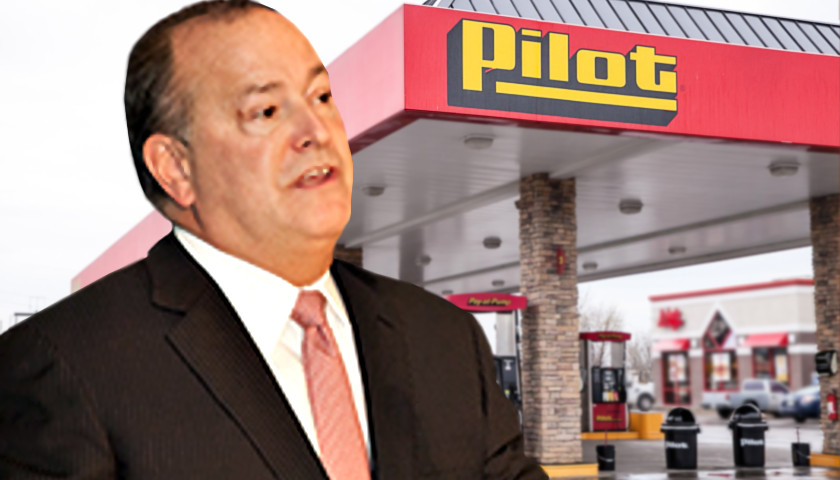Gov. Haslam’s proposal to increase the gas tax by 7 cents per gallon and the diesel tax by 12 cents per gallon will have an impact on the family-owned Pilot Flying J company, which “operates over 650 travel centers in 43 states and Canada,” 31 of which are located in Tennessee, and is the 14th largest privately held company in the United States with $22 billion in annual revenues according to Forbes.
“Located along interstates, the travel centers cater to both professional drivers and motorists selling gas, diesel, convenience store goods and fast food. Headquartered in Knoxville, Tennessee, the company was formed in 2010 when Pilot Travel Centers merged with Flying J to create a new company.In October 2015, the Haslam family announced that it had bought out the minority stake of private-equity firm CVC partners,” Forbes reports.
Exactly what that impact will be has been the subject of scrutiny and debate.
On the one hand, higher fuel prices are likely to have a dampening effect on the demand for gas and diesel fuel at Pilot’s retail facilities in Tennessee. That impact is not likely to be that great, since, as a percentage of the total retail price of these fuels, the tax increases will vary from 5 percent to 10 percent, and the demand for gas and diesel fuel is relatively price inelastic within that range.
Some critics have suggested that Pilot may benefit from cash flow management practices that will be afforded by the tax increases.
That argument goes as follows:
Pilot’s retail operations will collect the increased taxes, which will be held in the corporation’s bank accounts for 20 to 50 days before the funds must be remitted to the state. (Taxes on gas purchased between the 1st day and last day of a month are not required to be paid to the state until the 20th day of the following month).
If those funds are invested in interest bearing accounts during those 20 to 50 days, the proceeds–which some critics estimate could be as much as $50 million annually–will be the property of Pilot, not the state of Tennessee.
Speaking at the WWTN Gas Tax Town Hall on Thursday, State Sen. Paul Bailey dismissed that argument, stating that the remittances to the state are made by distributors, not retailers.
“When it [gasoline and diesel fuel] comes into the state either at the barge port or at the pipeline port, either by a company like shell, is actually paying that revenue to the state on the number of gallons that come in,” Bailey said.
Bailey did not address how long after the gasoline or diesel fuel arrives at the barge port or pipeline port the wholesaler has to remit the tax to the state.
He also did not address how the cash management of this increased tax affects companies that have combined wholesale and retail operations.
The governor has an ownership interest in the family-owned business, but exactly how big that interest is remains unknown, since the company has been privately held since it was founded by the governor’s father back in 1958.
Older brother Jimmy has been the CEO of the company for many years.
Jimmy Haslam, who bought the NFL’s Cleveland Browns in 2012, has seen a criminal investigation of price-fixing at Pilot by former employees unfold over the past several years.
“Tennessee Gov. Bill Haslam says the truck stop company he co-owns can start putting the fraud investigation behind it after it struck a deal with prosecutors to pay a $92 million fine and acknowledge that employees cheated customers,” the Associated Press reported in June 2014.
The U.S. Attorney’s Office for the Eastern District of Tennessee announced the company has agreed to pay the fine in an agreement signed Friday.
Haslam is not involved in Pilot Flying J’s day-to-day operations of the company that is co-owned by his brother, Cleveland Browns owner Jimmy Haslam.
Ten employees of the truck-stop company have pleaded guilty to participating in the scheme to cheat customers out of promised fuel rebates and discounts. The agreement does not protect anyone at Pilot from prosecution and requires the company to cooperate with an ongoing investigation
Early this year, however, former executives with the company were indicted.
“A federal grand jury has indicted eight former and current Pilot Flying J employees – including the former president – for their alleged roles in a diesel fuel rebate scheme that authorities say helped line their own pockets and enrich the nation’s largest chain of truck stops and travel centers,” WBIR TV reported in February.
Indictments unsealed Tuesday come almost three years after dozens of FBI and Internal Revenue Service agents raided Pilot’s West Knoxville headquarters and several other nearby offices, seizing thousands of documents and copying computer hard drives.
Attorneys for those indicted were told Friday to expect charges.
Former president Mark Hazelwood, 57, was the first to appear Tuesday morning in U.S. District Court. He faces three counts of conspiracy to commit wire fraud and a witness tampering count.Hazelwood was to be released and will be allowed to travel within East Tennessee. If he needs to travel nationally, he’ll have to get clearance from a probation officer, authorities said in court.
Despite the legal difficulties encountered by former Pilot Flying J employees, Gov. Haslam, who has not been involved in the operation of the company for many years, has been relatively unscathed politically by those issues.
As for Pilot Flying J, since only 5 percent of the company’s 650 plus truck stops are located in the state of Tennessee, a gas and diesel tax increase in the Volunteer State alone is not likely to have a material impact on the company’s financial performance, one way or another.
The company is poised to continue to grow nationally whether or not Gov. Haslam’s proposal passes or fails in the Tennessee General Assembly this session.





